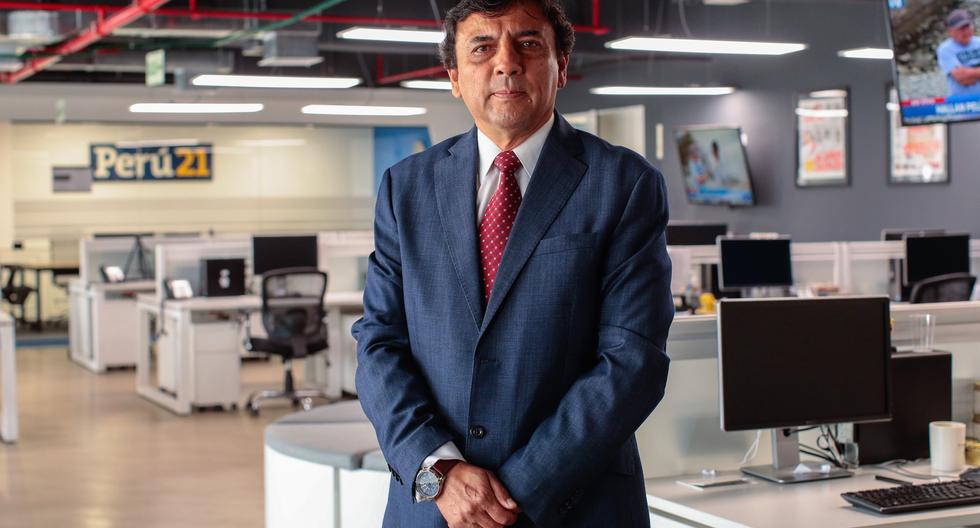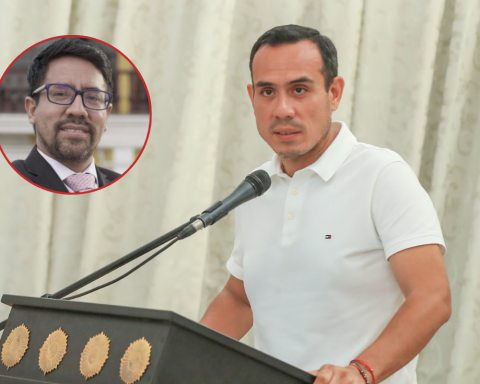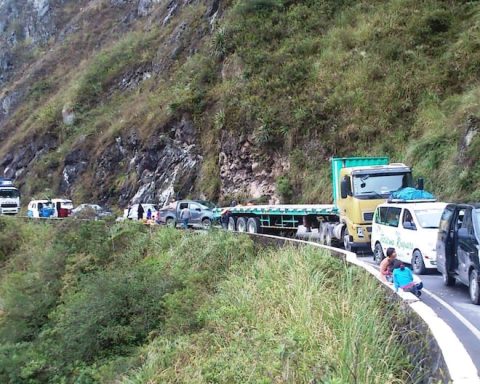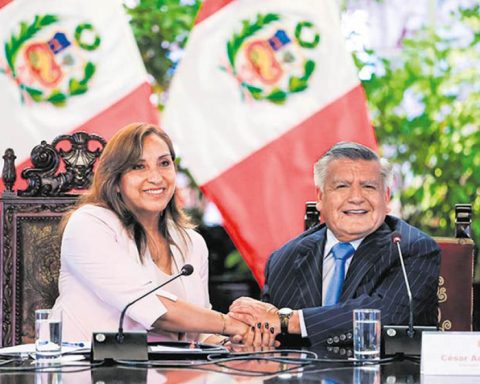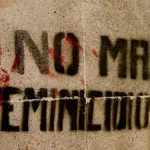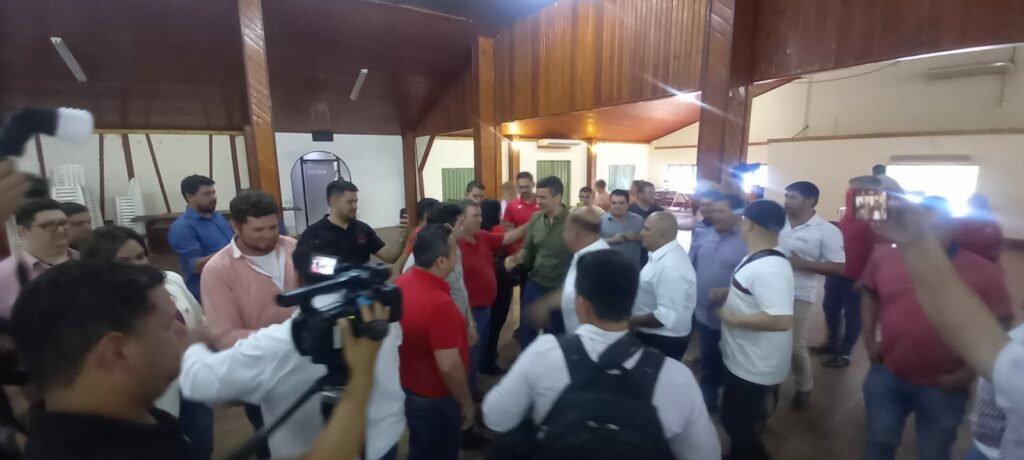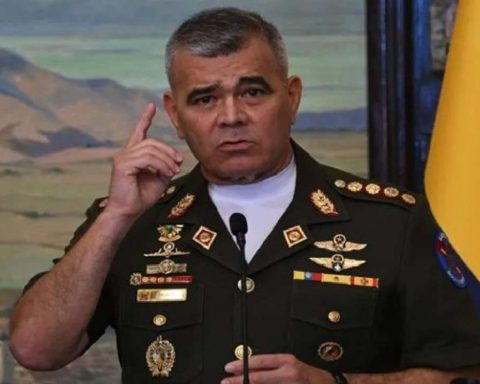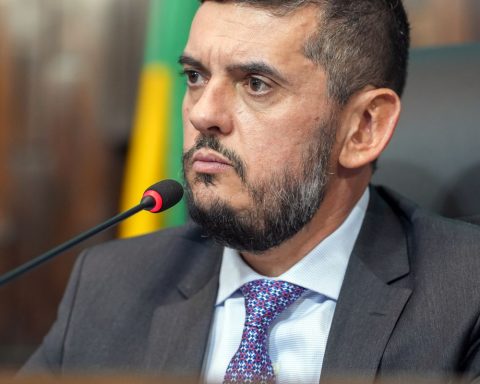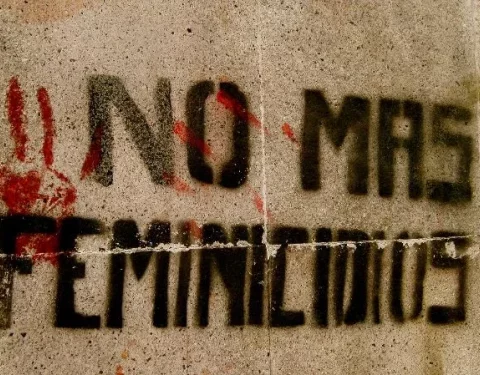Colonel FAP (r) Christian Schambaher Céspedes, former head of Counterintelligence of the National Intelligence Directorate (DINI)talks about the crisis that this direction is going through after the arrest last Friday of José Luis Fernández Latorre. And he confirms to Peru21 that there were approaches from the Palace to be his replacement.
For the first time in history, we have the acting head of the DINI arrested for a corruption scandal that even affects the president himself. How did we get to this crisis point?
Indeed, what you have said is correct. We are facing an institutional crisis of the National Intelligence Directorate. In history, the DINI has had two previous crises, the first with Montesinos and the second in 2015 with the Cabinet of Ana Jara. And when we review the real causes for which we have reached this stage, and the two previous ones, it is that the institution was politicized. And that is the worst thing that can happen to an intelligence agency, that it becomes politicized.
LOOK: DINI boss is detained for payments to former secretary Bruno Pacheco
But what are we seeing now and why does it affect you?
Here I can see that there is a chain of errors that leads to this crisis. The first one undoubtedly has to do with the appointment of Mr. Fernández, an obviously wrong appointment. He was not the right person, he did not have the qualifications, the skills or the experience that is required by law. But, nevertheless, the president chose to put it. This error led to the next one, that he —already in the DINI— did not do what someone sensibly should have done: aware of his limitations, he should have surrounded himself with competent people, with experience in the subject of intelligence and professionals. He didn’t do it, he filled the management positions with people who undoubtedly did not meet the appropriate requirements to manage the State intelligence structure. Because you have to understand that the DINI manages the State’s strategic intelligence. But that was not all, but in less than six months what he did was purge the interior, taking out good professionals and analysts.
But, precisely, there were already some indications of irregularities from before (this arrest). It is not something that happened overnight. Who are called upon to oversee such a complex and hermetic leadership by its very nature?
Yes, from day one a series of questions and failures within the system began to be raised, which were made public thanks to the press. And there we enter the field of the entity called to supervise and control intelligence activity: the Intelligence Commission. Throughout all this time, the DINI has been dotted with many questions, but in the face of them it powerfully calls attention to the fact that this commission, which is the one that has the powers to exercise political control, seems to have resigned itself and ignored this mandate he had. For me it is a determining factor by which we have reached this instance. Because we do not understand how it is that, from this commission, with Admiral Cueto at the helm, who is a person with a lot of experience, there was no control and inspection work. There were never real and concrete answers to all these questions, until we got to the issue of payments. And there it is also striking how he advances his opinion and says ‘no, at DINI everything is fine, nothing is wrong, we have investigated and everything is in order, there is no Montaña agent, there are no payments, everything is correct’. And what happened? That the Prosecutor’s Office has had to do their job. So it has left Admiral Cueto and the commission in a very bad light, which has not had in its hands the capacity and the will to supervise.
WATCH THE INTERVIEW HERE:
Precisely, there is talk of payments to the former Secretary General of the Palace, Bruno Pacheco, and other payments to the agent ‘Montaña’ (who would actually be Vladimir Cerrón), this from the thesis of the Prosecutor’s Office. Could this not have been noticed by the Intelligence Commission itself?
Of course. Not only by the Intelligence Commission, but also by the Comptroller General of the Republic. What happens is that the levels at which control actions and audits reach are given by who does them. If there really hasn’t been the will to go to the bottom, they won’t find anything. The special resources are perfectly regulated and regulated by directives of the DINI, it is not like it has been said in a very happy way that the reserved expenses are freely available. That is not right. There are mechanisms that strictly regulate and control spending, execution and accountability.
And if the Prosecutor’s Office wants to get to the bottom of this, how can they do it?
Through a judge. There are three instances that can access classified documentation. In the first place, the Intelligence Commission (it has no limits, it can arrive and ask for the last document that is generated on the special resources); the comptroller general of the Republic and also by court order, which I believe is what is going to happen.
In other words, the Prosecutor’s Office can ask the judge to show all the payments.
Of course.
And, in general, how is the national intelligence system facing these accusations that weigh on who was its highest representative?
In the first place, I believe that this crisis affects the institutional framework of DINI, as well as the morale of very good civil and military officials and professionals. This creates discredit and loss of prestige before the international intelligence community because DINI has cooperation mechanisms and bilateral information exchange with similar agencies in the region and the world. Of course it hits. And it also generates distrust towards society and public institutions. But, the main consequence is that a weakening of the system is generated. Let’s keep in mind that DINI is the head and rector of the intelligence system. Here something must be specified: the problem is not DINI, the organization, but the people who were in charge.
The function of the DINI has been denatured…
And I said it: the worst thing that can happen to a state intelligence agency is to become politicized. And what has happened now, as on the other two occasions, is a politicization. But with the aggravating circumstance that the DINI is now being linked as part of a criminal organization and that is terrible for the institution.
But I insist on this idea. How is the system itself? Because it leaves the perception that intelligence is bad…
When I say weaken the system, it is that we are left in a worrying defenseless space. Because while this crisis lasts, there are innumerable threats to security, defense and national development that continue their course. And the State is going to be seen in a defenseless state. For these threats there is no crisis, they continue in their actions. That is what is worrying and therefore the call for a quick solution to this crisis.
:quality(75)/cloudfront-us-east-1.images.arcpublishing.com/elcomercio/MAQCIFY6BJE2BBNWTMVLVQFETU.jpg)
Interview with Colonel FAP (r) Christian Schambaher Céspedes, former director of Counterintelligence of the National Intelligence Directorate (DINI). (Photo: Lenin Nelson Tadeo Rodriguez / GEC)
But as a result of these mismanagements, voices have arisen who believe that the DINI should be closed.
I radically disagree with those voices. The worst thing that could happen to DINI is that it be declared in reorganization and closed. We can not. The DINI is the first line of defense that the State has against threats to security and national defense. How is it going to close? In any case, that the Intelligence Commission be deactivated for not doing its job.
What should be done in the medium, short and long term to recover from this.
It is essential that a new director be appointed. And this has a very particular characteristic: that it does not have any bias or political affiliation, because the work of the DINI is purely technical, specialized and professional work. If you include a person with a political bias, you incur the possibility of the institution becoming politicized, which is what has happened.
Finally, there are rumors that you would be in the gig as a possible new director of DINI. This is correct?
Yes. I cannot deny it, I have had some approaches with some emissaries of the Executive a couple of days ago. And I have talked, I have simply demanded only one thing from them.
Which?
Work within the framework of the law. Do exactly what the law says, no more, no less. With strict adherence to the law.
But acting within the framework of the law, what would it mean…
You will know the answer if they designate me.
RECOMMENDED VIDEOS:
:quality(75)/cdn.jwplayer.com/v2/media/qk9simcE/poster.jpg)
